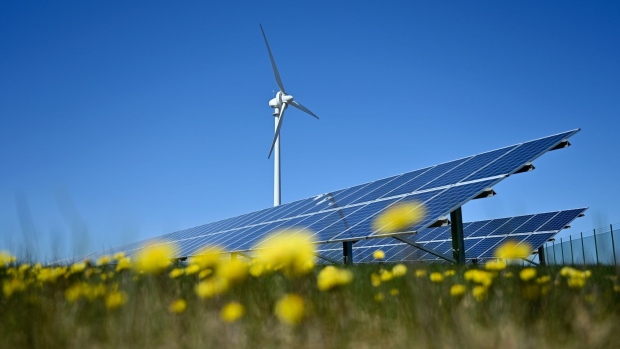Nov 22, 2021
Fund Managers Face More Delays as EU Greenwash Rules Hit Hurdles
, Bloomberg News

(Bloomberg) --
Europe will likely delay a vital plank of its anti-greenwashing regulation for fund managers, as authorities overseeing the process get slowed down by the sheer complexity of the task, according to a person familiar with the process.
Regulatory technical standards intended to provide more clarity on how to disclose what’s sustainable and what’s not may not be in place until the end of next year, according to the person, who asked not to be identified discussing information that has yet to be made public. Such a change in the timeline by the European Commission would represent a six-month delay relative to a previous deadline, which was already later than the original plan.
Europe has been trying to move faster than other jurisdictions in piecing together the world’s most ambitious green rulebook for financial markets. But the project is mammoth, and everyone affected -- from asset managers, to corporations, to banks and regulators -- has voiced anxiety over the scale of the task.
Europe enforced its Sustainable Finance Disclosure Regulation in March -- an ambitious framework designed to fight greenwashing -- but is still working on substantial updates. Those include the regulatory technical standards, which are in part intended to help the industry understand how best to align investment products with the underlying green taxonomy.
In a speech on Friday, Verena Ross, chair the European Securities and Market Authority, acknowledged the difficulties regulators may face as they try to piece together the new rulebook. But she also said that “practical difficulties” are to be expected with “all novel areas of legislation.”
In a letter last month to EU Commissioner Mairead McGuinness, the three European supervisory authorities working on the new technical standards -- ESMA, the European Insurance and Occupational Pensions Authority and the European Banking Authority -- highlighted a number of key issues. They also warned that a separate decision by the EU Commission to extend a deadline for non-financial companies’ sustainable reporting requirements “poses significant challenges.”
ESMA, the EBA and EIOPA referred questions to the European Commission, which declined to comment on potential delays of the technical standards.
Meanwhile, investors aren’t waiting for any regulatory clarifications as money continues to pour into strategies labeled as sustainable. Environmental, social and governance assets already made up more than a third of the total global market last year, and will exceed $50 trillion by 2025, according to Bloomberg Intelligence.
In their letter to the commission, the three supervisory authorities highlighted the following concerns:
- Higher reporting requirements for investments that align with the EU’s taxonomy of sustainable economic activities, compared with other sustainable investments.
- “Increased complexity” for investors as a result of a decision to account for sovereign debt holdings in two separate ways.
- Overly complex information for retail investors because of a requirement that disclosure templates serve multiple purposes.
- Different deadlines for applying taxonomy and SFDR reporting requirements.
The technical standards are still due to be applied from July 2022, meaning asset managers will have to provide taxonomy-alignment disclosures before they have access to the necessary data, the supervisors said. The fund industry has warned that the complexity of SFDR and Europe’s taxonomy means asset managers may fail to comply with reporting requirements.
As things stand now, the industry won’t be able to “disclose realistic and informed taxonomy alignment which is coherent and comparable as of 2022 and disclose actual portfolio alignment,” Marc-Andre Bechet, deputy director general of the Association of the Luxembourg Fund Industry, said by email.
Once regulatory technical standards are ready, they still need to be cleared by the European Commission, as well as the EU’s parliament and council, before they can be implemented.
©2021 Bloomberg L.P.